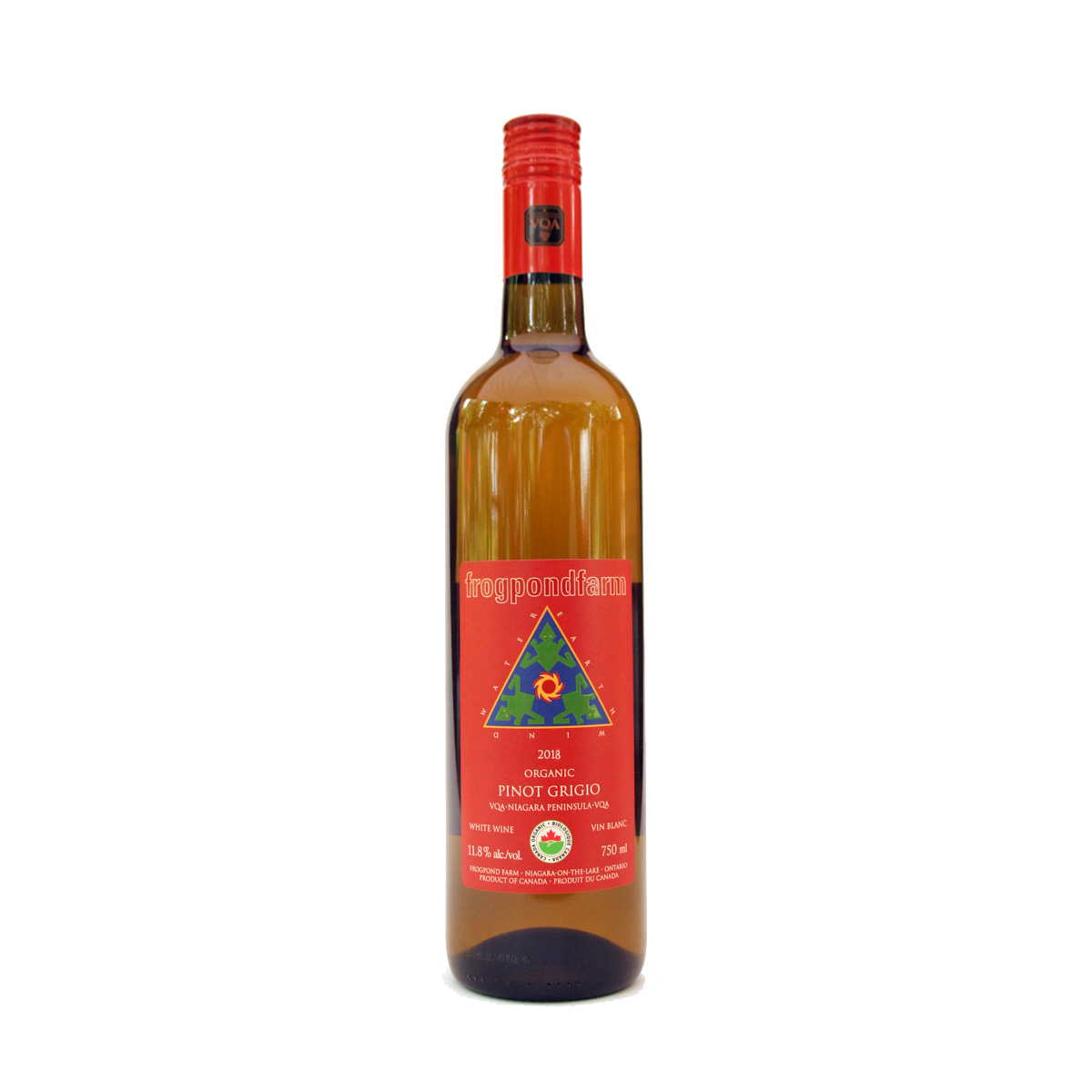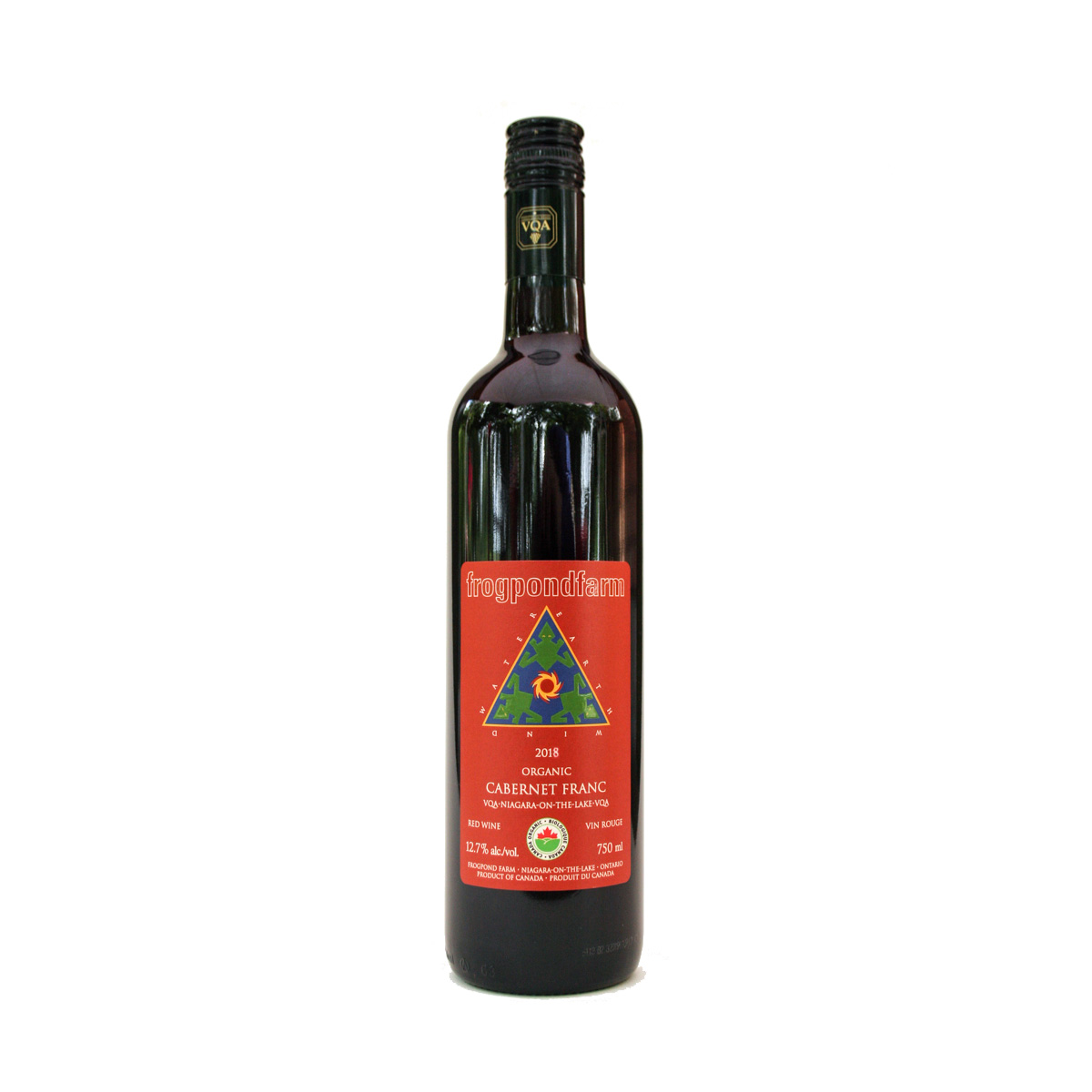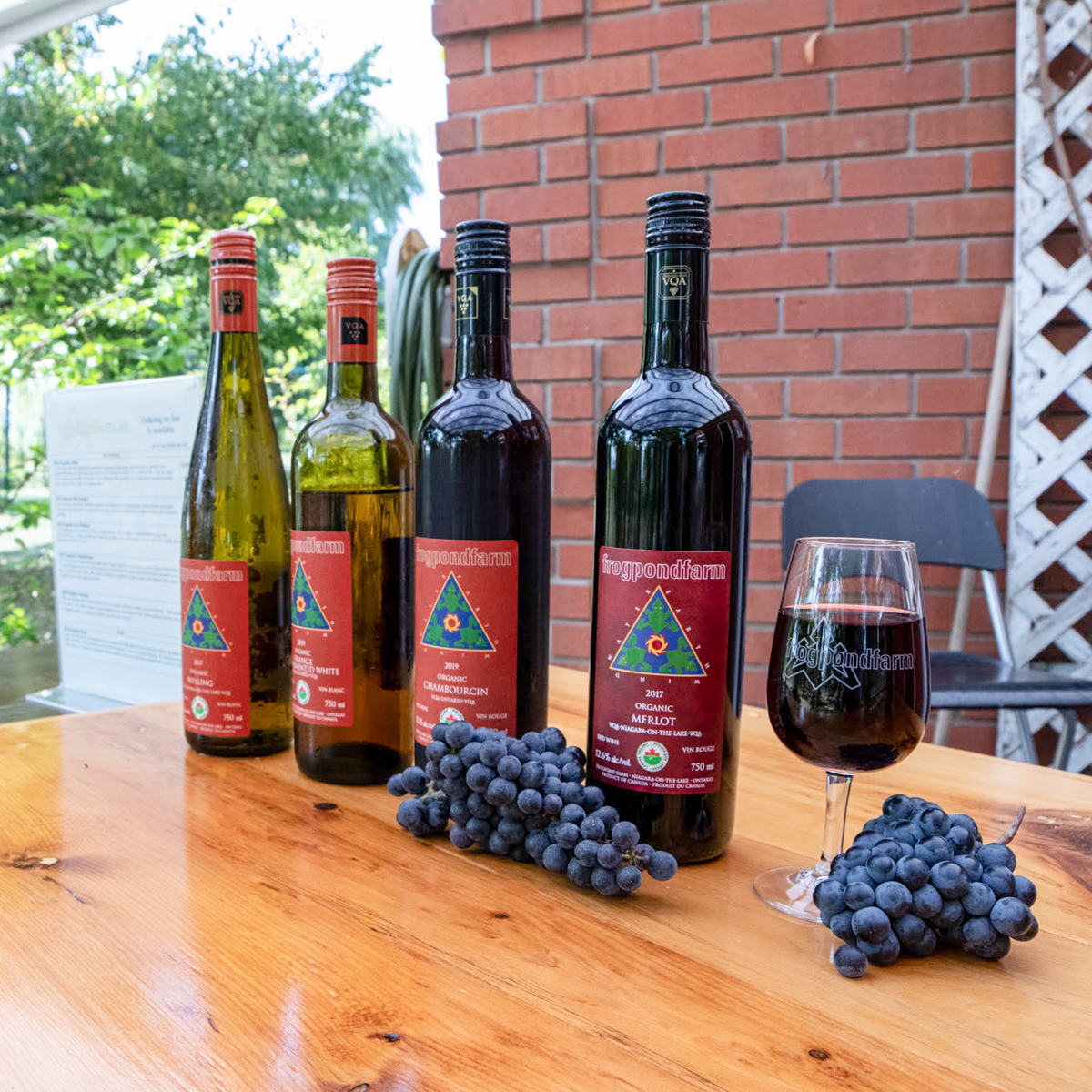No one can blame you if you are confused and frustrated by the variety of terms in the wine industry to denote low intervention wines that are made in an eco friendly manner.
What you expect or want …
- wine made from organically grown grapes (no pesticides and synthetic fertilizers)
- wine that is certified by a recognized organization
- wine with low sulfites (SO2) or no added sulfites (SO2)
- wine produced in a traditional manner, hand crafted and with little intervention
- wine that is delicious and offers good value for money
But what you get is a quandary!
Why?
- Well, each wine growing region has its own rules and legislation governing wine production and the labelling of wine.
- Trends … yes, we have innovators and trend setters in the wine industry!
- And, very importantly, each region reports levels of sulfites differently … either in Free SO2 (sulphur dioxide) or in Total SO2.
Therefore, no one can blame you for being confused!
So, let’s get started by defining what each wine term means:
Organic Wine ~ Purity of product, nonsynthetic
Certified Organic Wines (Canada)
- wines are made with organically grown grapes (no pesticides and synthetic fertilizers used in the vineyard)
- organic additives (fining agents, yeast etc. and non-GMO’s)
- added sulfites are allowed up to 30 ppm Free SO2/sulfites or 100 ppm Total SO2/sulfites*
USDA Organic Wines (USA): There are 2 major categories here …
- Organic Wine
-
- wines are made with organically grown grapes
- organic additives (fining agents, yeast, etc. and non GMO’s)
- added SO2/sulfites are not allowed
2. “Made with organic grapes”
-
- wines made with organic grapes and organic additives (fining agents, yeast, etc. and non-GMO’s)
- but these wines can add up to 100 ppm total sulfites
- wines are made with organically grown grapes
- all additives (fining agents, yeast, etc.) are organic and non GMO’s
- total sulfite additions are limited to 100 ppm in red wines and 150 ppm in white/rosé wines
Fun Facts About Organic Wines
Europe will account for 78% of the global organic wine market by 2022.
People who buy organic tend to be female, have higher incomes, and live in metropolitan areas.
Organic wines make up almost 4% of total wine consumption globally and growing.
Italy, France and Spain are the biggest global wine producers and together make up 79% of the world’s total organic wine production.
Natural Wine … or now a more trendy version Raw Wine
Natural wine is not part of a formalized system of cultivation and production; natural wine is made without any chemical intervention, use of commercial yeasts or industrial practices in the winemaking process. There is no addition of sulfites. Read more.
A newer movement in “natural wine” is Raw Wine and it professes the following:
1. Organic grapes, grown without the use of artificial chemicals.
2. Wine prepared by hand using artisanal techniques.
3. Made using traditional winemaking processes that enable balance.
4. Creating a living wine, with low intervention in the cellar.
5. Promoting wellbeing in individuals & communities.
Biodynamic Wine ~ Holistic agricultural health
- wines are made with organically grown grapes
- but the focus is on maintaining soil health and timing vineyard actions (planting, pruning, harvesting etc.) with lunar and planetary cycles
There are two internationally recognized certifying bodies: Demeter and Biodyvin.
Fun Facts About Biodynamic Wines
Biodynamics is a philosophy developed in the 1920s by Rudolf Steiner in response to the industrialization of farming which he believed would deplete the earth’s ability to create healthy soil to yield healthy crops.
Biodynamic uses preparations for fertilizing and composting made from combinations of manure, herbs and flowers, minerals and organic materials (cow horns, bladders, skulls) to be buried in the soil or sprayed on vines and compost.
Biodynamic wineries are found all over the world; in 2018, 600 wineries had vineyards with bio-dynamic certification.
Sustainable Wine ~ A winery’s environmental footprint
Sustainability is more than just being environmentally-friendly; it integrates protection of the environment, profitability, and social issues/equity. Due to climate change, this category of wine will become more important/prominent. Internationally, the EMS Environmental Management System (ISO 1401/ISO 1404), sets a baseline for sustainability.
Sustainability in the wine industry may look like this:
- mitigation and reduction in wastefulness in winery operations (water usage and waste water management)
- greater concern for the health and safety of workers
- use of lighter bottles and use of other recyclable wine packaging
- wine produced in an ecologically responsible manner (pesticide use)
Here are the countries so far that have sustainability certifications:
- Argentina ~ Bodegas de Argentina Sustainability Protocol (no certification body yet)
- Australia ~ Sustainable Australia Winegrowing (SAW) (one of 3 certification programs in that country)
- Chile ~ Certified Sustainable Wine of Chile (wineries and vineyards reviewed every 2 years)
- New Zealand ~Sustainable Winegrowing New Zealand (SWNZ) (wineries and vineyards audited every 3 years)
- South Africa ~ Integrity and Sustainability Certified (wineries and vineyards audited every 3 years)
- USA ~ multiple certifications: Salmon Safe, LIVE Certified, Certified Green (Lodi Rules), SIP Certified, Certified California Sustainable Vineyard and Winery (CCSW)
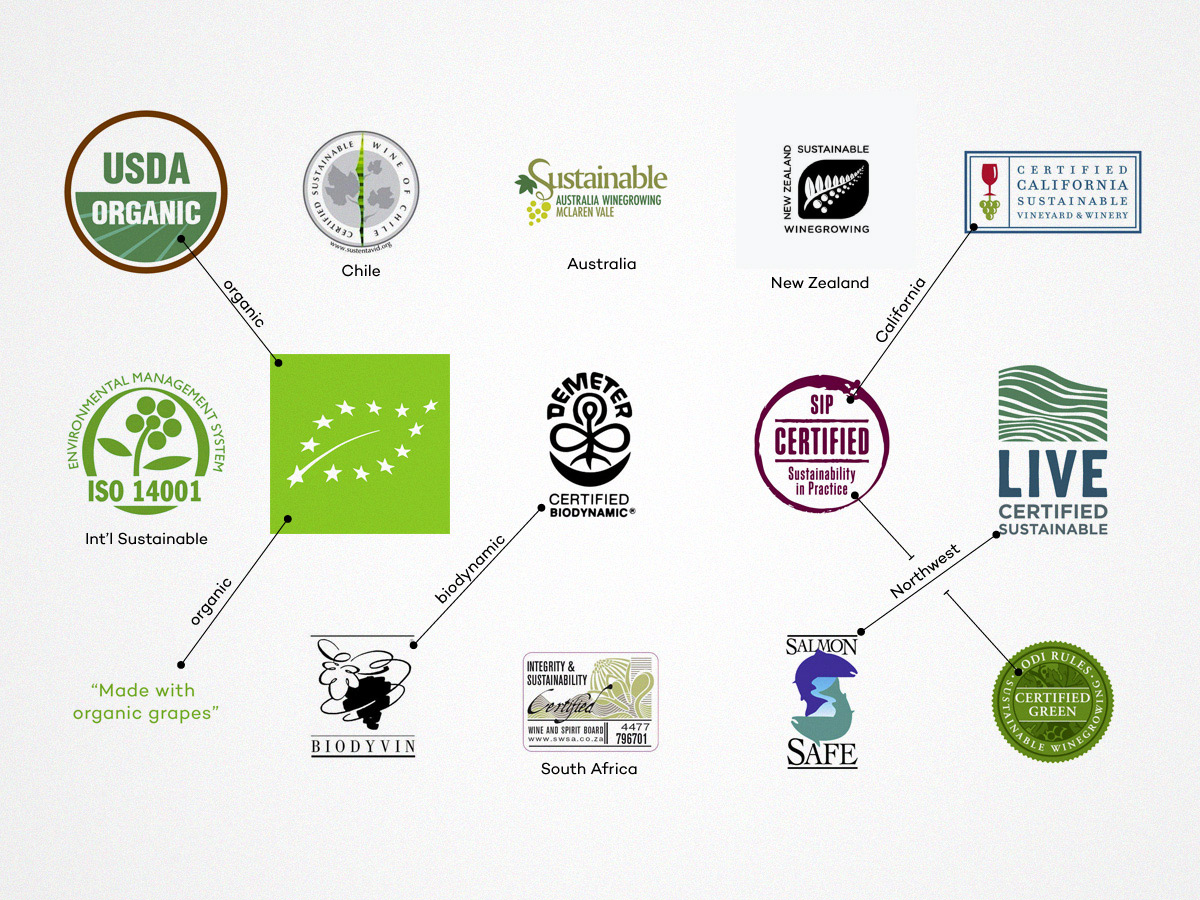
(Source: Wine Folly, May 18, 2016)
Fun Facts About Sustainable Wine
Sonoma wine region (California) is entirely sustainable.
Almost 100% of New Zealand vineyards are certified sustainable.
Nearly 100% of South African wines are Integrity & Sustainability Certified.
Vegan Wine ~ No animal by-products
All wines could be vegan if wineries did not use a clarifying process called “fining”. This process removes tiny, natural particles (proteins, tartrates, tannins and phenolics) which are not harmful but they can make wine cloudy. Since most wine-drinkers like to drink wines that are clear and bright, winemakers use a variety of fining agents to remove these particles. Most of these fining agents are animal derived: albumin (egg whites), casein (a milk protein), gelatin (animal protein) and isinglass (fish bladder protein). A vegan friendly fining agent is bentonite (clay based). (Activated charcoal is also a vegan friendly fining agent but it is very rough on wine.)
Fun Facts About Vegan Wine
Frogpond Farm Organic Wines are all vegan friendly as no fining agents are used!
A new Canadian certifying body, VegeCert, can now certify wineries reviewing winemaking processes and supplies to make sure they are vegan.
*Understanding Sulfites in Wine (SO2/sulphur dioxide)
Free SO2 is the available active, molecular form of SO2 that helps to protect wine from oxidation and spoilage. Consumers can perceive too much free SO2 as a sharp/bitter/metallic/chemical flavour or sensation. Too much free SO2 masks the wine’s fruity aromas.
Total SO2 is the portion of SO2 that is free in the wine plus the portion that is bound to other chemicals in the wine such as aldehydes, pigments, or sugars.
As well, no wine is totally without sulfites because SO2 is a by-product of fermentation. Wine without added SO2 will have under 10 parts per million (10 ppm or 10 mg/L).
Lastly, sulphur is a naturally occurring element; it is permitted in organic vineyards as a non-toxic fungicide. When added during wine production or bottling, the SO2 protects against oxidation and microbes, keeping wine fresh, stable and free of flaws.
Amount of Sulfites in Wine
Let’s start with Ontario, since we hope you support and buy VQA wines!
Market: Canada (Ontario)
Free SO2
- 30 ppm (g/L) Certified dry organic wines <50 RS (50 g/L of sugar)
- 35 ppm (g/L) Certified medium sweet organic wines 50-99 RS
- 45 ppm (g/L) Certified organic sweet wines >99 RS
Total SO2
- 100 ppm (g/L) Certified dry organic wines <50 RS (50 g/L of sugar)
- 150 ppm (g/L) Certified medium sweet organic wines 50-99 RS
- 250 ppm (g/L) Certified organic sweet wines >99 RS
Market: European Union
Total SO2
- 100 ppm (g/L) Certified organic red wines
- 150 ppm (g/L) Certified organic white, rosé wines
- 205 ppm (g/L) Certified organic sparkling wines
- 270 ppm (g/L) Certified organic botrytis/late harvest wines
Last Words
Be kind to the planet and drink organic, biodynamic, natural, raw, sustainable and vegan wine. Hopefully some of the wine you choose to drink is Frogpond Farm Organic wine! Cheers.


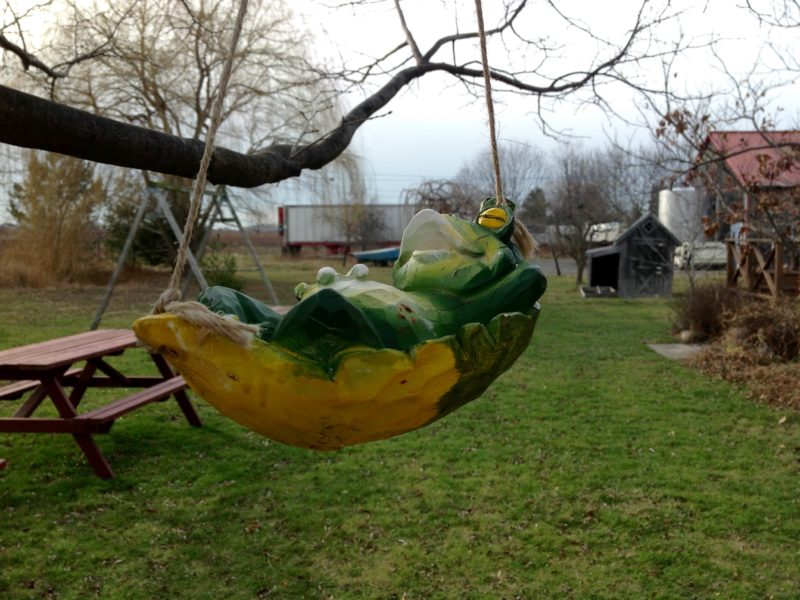
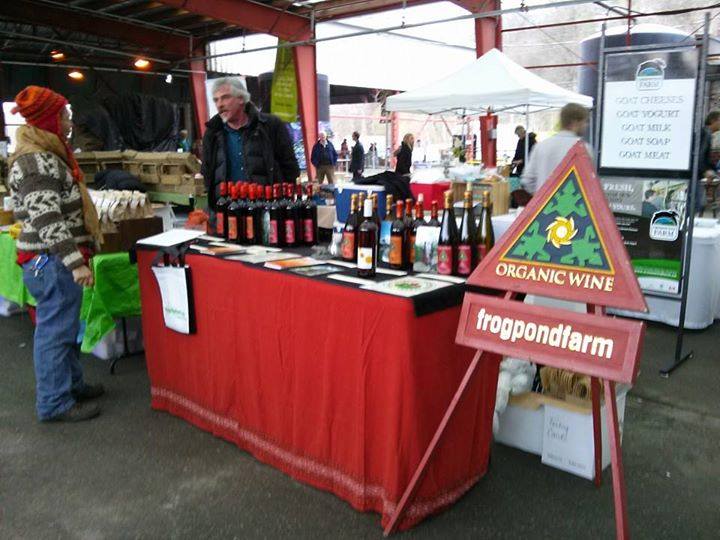 Winter Farmer’s Markets
Winter Farmer’s Markets
